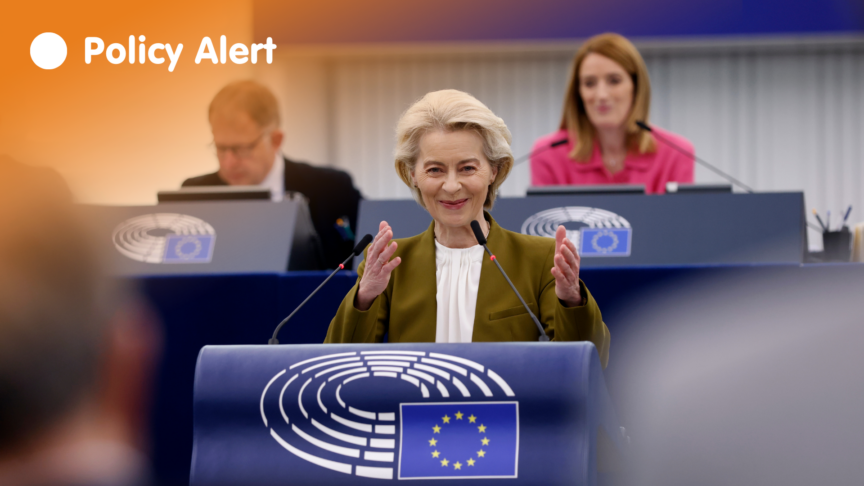Macedonia’s looming war of interpretations
A clear majority in favour of the name deal in the referendum on September 30 would help to relieve tensions in the Balkans
After years of turmoil, Macedonia seems to be turning the page in its political development. The mood in Skopje is quite different from that of recent years: energised and optimistic rather than gloomy. Big reform challenges lie ahead, but the government is rightly focusing all its efforts on the campaign for the Prespa Agreement. If it succeeds, progress on NATO and the EU membership will provide the context for reform. If it fails, the moment will pass and Macedonia will be unlikely to get another such opportunity for several years – perhaps even a decade or more.
Both the government and observers expect the referendum on 30 September – on changing Macedonia’s name to the “Republic of North Macedonia” and pursuing membership of the European Union and NATO – to deliver a positive result, with as much as 80 percent of the vote. The risk is that this could lead to a war of interpretations.
According to data from the last census, Macedonia has an electorate of around 1.8 million – meaning that the 50 percent threshold is just over 900,000. Everyone knows that the population has fallen since the census – perhaps to 1.5 million. The government needs a turnout that is judged respectable and representative of a big majority. Turnout seems likely to be around the 750,000 mark; but, even below this, a significant majority in favour of the government’s proposed package would justify a parliamentary vote on the changes.
In any case, the referendum is a political event rather than a legal one. Had the government sought to change the constitution by means of a referendum, it would have needed a turnout of more than 50 percent. Since the government has decided to pass the constitutional changes through parliament, the referendum is consultative in nature. Naturally, a large turnout and majority in favour of the proposed changes would give the government the momentum to take the issue to parliament.
The international reaction to the result of the referendum – if unanimous or near-unanimous – is likely to influence the way it is seen within Macedonia. A disputed result could lead to a blockage in parliament – and, if this happens, the name-change issue would no doubt feature in the Greek election in spring 2019.
A second threat is that the legitimacy of the referendum could be questioned if Albanian votes for the government’s proposition outnumber those of Slav Macedonians (although this does not seem likely.) Part of the opposition is campaigning for voters to avoid the referendum altogether. It is unclear how effective this negative messaging will be – yet it is supported by significant financing from the diaspora.
The post-referendum period is every bit as important as the campaign
Nonetheless, if there is a consensus that the people had given the agreement their backing, the government would have the wind in its sails and the parliamentary procedure would have a decent chance of success.
The high level of foreign participation in Macedonia – from visits by the NATO secretary-general, German Chancellor Angela Merkel, and US Defence Secretary James Mattis to video addresses from EU Council President Donald Tusk and French President Emmanuel Macron – has significantly contributed to the positive attitude towards the Prespa Agreement. But, as many in Skopje worry, foreign interlocutors could lose interest in Macedonia after 30 September. This is potentially a problem because the post-referendum period is every bit as important as the campaign. It’s not the result that matters, but the interpretation.
Should the referendum produce a clearly positive result, this could give new life to the European perspective. It could also demonstrate that problems in the Balkans can be solved through compromise and good politics.
However, a disappointing or contested result would once again postpone Macedonia’s NATO membership, which would have repercussions across the region. Albanians in Macedonia would have more reasons than they currently do to appreciate the “change of borders” rhetoric popular among some in Kosovo.
There are doubts among the opposition in Skopje about whether a future Greek government will honour its commitments laid down in the Prespa Agreement. The Nea Demokratia opposition’s fierce rejection of the name deal raises concerns about its potential role in forming the next government in Athens.
While Russia has no visible role or influence in Macedonia in the run-up to the referendum, there are small signs that it is entering the Macedonian debate – through cultural policy, media outreach, and even a new political party, the curiously named “United Macedonia” (a moniker reminiscent of President Vladimir Putin’s United Russia). And, of course, one should not rule out the possibility of Russian influence in the aftermath of the referendum.
In fact, the only overt outside opposition to the Prespa Agreement comes from Hungarian Prime Minister Viktor Orbán, who has supported VMRO-DPMNE in calling for a boycott of the referendum. Hungarian-owned television station Alfa – which is popular among VMRO-DPMNE viewers – is the most high-profile media outlet advocating for such a boycott.
It seems that Orbán, Merkel, and Mattis alike recognise the importance of Sunday’s referendum in Macedonia: a clearly positive result and a subsequent resolution of the name issue will change the course of the Balkans, where there are many ongoing bilateral disputes. Conversely, a contested result will further destabilise the region for a decade to come, opening more space for third actors (such as Russia, Turkey, and China) and radical groups. Hopefully, Macedonians also realise what is at stake.
The European Council on Foreign Relations does not take collective positions. ECFR publications only represent the views of their individual authors.


